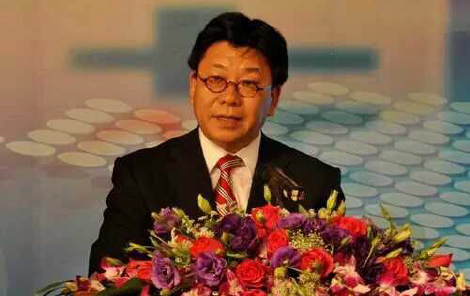How can China foster its think tanks?
- By Han Fangming
 0 Comment(s)
0 Comment(s) Print
Print E-mail China.org.cn, November 25, 2015
E-mail China.org.cn, November 25, 2015
|
|
|
Dr. Han Fangming, Chairman of the Charhar Institute [China.org.cn] |
"Think tank" has been a buzzword in public policy since 2014, and it will continue to be in the future.
The outlook for the development of Chinese think tanks in 2015 is promising judging from the work reports delivered by Chinese Premier Li Keqiang and Yu Zhengsheng, chairman of the 12th National Committee of the Chinese People's Political Consultative Conference (CPPCC), both of whom stressed the importance of special intellectual institutes at the recent annual legislative sessions.
In past centuries, China never lacked talented advisors and counselors, though they typically worked privately for feudal masters. In modern times, advisors and counselors are often organized in think tanks, institutes that provide research and recommendations about policies that serve the public interest.
It has not been long since think tanks first began to receive considerable attention in China, and the number of such intellectual institutes has increased sharply since the 18th National Congress of the Communist Party of China in November 2012.
According to the Opinion on Strengthening and Building New-Type Thinks Tanks with Chinese Characteristics issued by the central government in January 2015, think tank development is imperative to the country's overall strategic goals.
The country's top decision makers probably issued the Opinion in the hope of stimulating the intellectual market with a variety of voices, to improve the quality of policies and the effectiveness of theories when they are applied to practice.
According to the Global Go To Think Tank Index Report 2014 issued by James G. McGann, a professor from the Lauder Institute at the University of Pennsylvania, there are 6,681 think tanks in total around the world. Of these, the United States had 1,830, ranking first in the world, while China perched in second with 429 think tanks.
The ranking may not be without its flaws, since the criteria for defining an organization as a think tank for the list should be more strictly scrutinized.
In my previous article, "Chinese think tanks should avoid any great leap forward," I point out that think tanks should serve the public interest and not operate for profit. They should also be comparatively independent and innovative.
Therefore, institutes affiliated with consultancies, assessment firms, government research offices and academic research centers at universities should all be excluded from the category of think tanks.
A real think tank belongs to society at large, an idea that is at least shared in the western hemisphere.
Despite the growing number of China's think tanks, the quality and influence of those institutes still lag far behind. According to McGann's ranking list, the most influential think tank in China only took 27th place among top think tanks worldwide. Therefore, we need to pay attention to three aspects that affect the rise of Chinese think tanks, through which China's soft power as a major country in terms of its population and comprehensive strength can be accordingly manifested.
First, government entities, the most important clients for public policy research, should increase their consultation with think tanks. The government work report presented recently by Premier Li Keqiang echoed this point with the provision that fundamental public services should be purchased and that any management services for specific issues that can be provided by third parties should be acquired through market mechanisms.
Second, the government and society should create an environment conducive to the development of think tanks. It is not sufficient to streamline registration processes and cancel the requirement for think tanks to be affiliated with government authorities. Donations from enterprises or individuals to non-governmental think tanks should also be encouraged. Let's hope that many wealthy entrepreneurs become aware of the importance of think tanks and spend part of their colossal incomes on intellectual products aimed at the public interest instead of spending all their wealth on extravagance.
Third, non-governmental think tanks should generate more innovative ideas to enhance their own development, since these new ideas will definitely play significant roles in China's rejuvenation.




Go to Forum >>0 Comment(s)